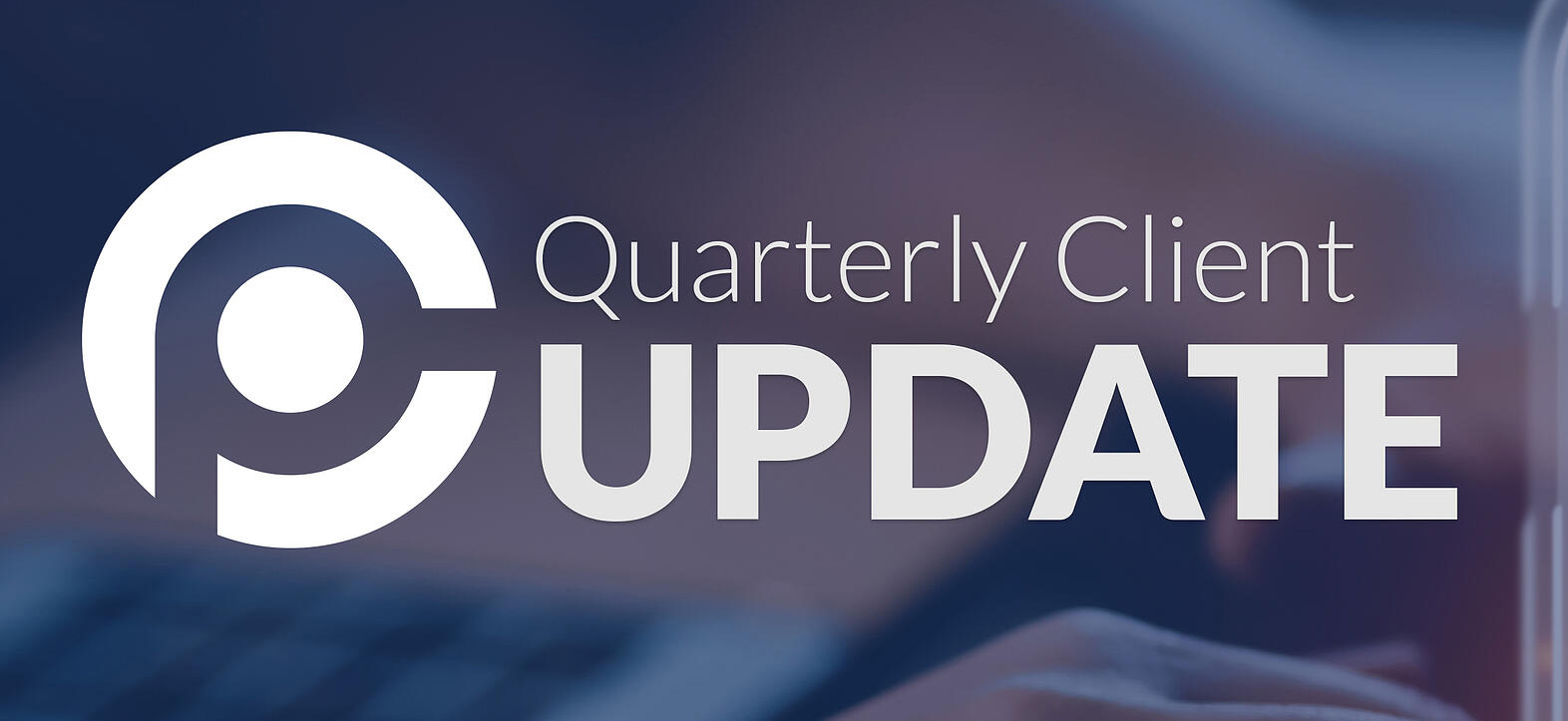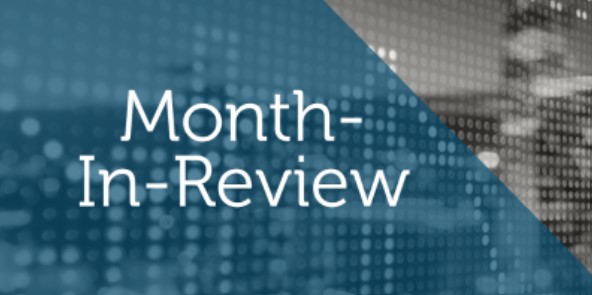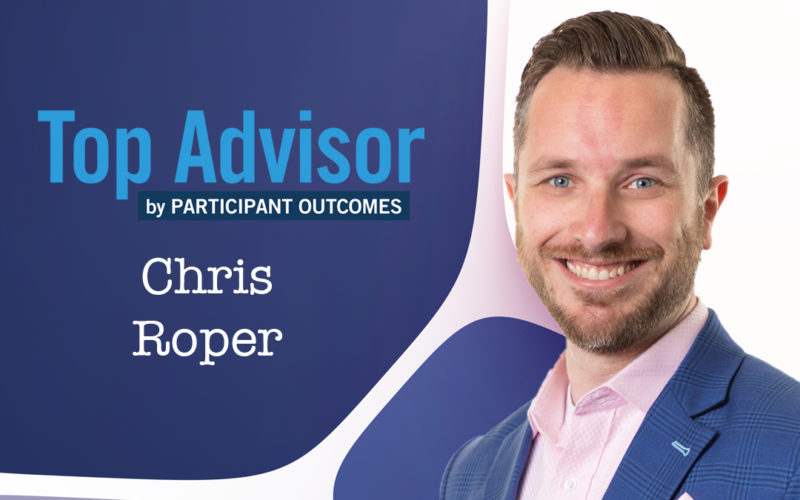With inflation at multi-decade highs and inflation expectations inching up, the Fed has reprioritized its focus from supporting growth to quickly taming inflation. The Fed has stated (unequivocally, to our ears) that they would gladly risk a recession now via restrictive policy to avoid the bigger risk of higher and more entrenched inflation later. This is the right long-term policy, but means that economic growth will slow in the near term.
The Bezos Effect: 3 Big Things Corporate Boards Need to Do About Succession Planning

Many successful leaders tend to be nonconformists. They often demonstrate individualism at an early age and aren’t afraid to break a few rules. It’s part of what makes them so successful. But their risk-taking behavior, especially in their personal lives, can present unique challenges for the boards that manage their companies.
What would happen to a company’s business plan or board of directors if, say, the Chairman of the Board decided to take a rocket ship into space? Or, a board member faced a health concern that changed everything?
An NPR segment, Corporate Boards Find It Difficult To Limit Executives’ Risk-Taking Hobbies, highlighted these questions and the critical need for corporate boards to plan for inevitable, albeit unpredictable, change. While succession planning isn’t going to grab any juicy headlines, it is the tried and true method for mapping the long-term viability of a company.
So how does your organization get started on this journey? Here’s a hint – You don’t have to touch the edge of space to get going. Here are the three big things corporate boards need to do about succession planning right now.
CREATE: Creating a written succession plan is the first step to providing stability to the organization during times of crisis and change. This will be a living, breathing document that will be updated over time, but the first charge is to outline the steps that the board will take to fill a position whether it was vacated due to an emergency or a planned departure.
IDENTIFY: Identify potential leaders both inside and outside the organization who align with your corporate goals to fill these vacated positions. Viewing this process as a way to develop and mentor strong leaders for your organization will also get the board motivated to make progress on this step.
MEASURE: Measure your progress by holding outgoing interviews with retiring or exiting board members. I also recommend an annual board performance assessment that is both self-reflective and evaluated by fellow board members. Ongoing policy review and analysis will ensure that the succession plan is executable. Making succession planning a mandatory annual agenda item for discussion at board meetings is key.
Policy adherence begins at the top and the board must lead by example. Proactive succession planning puts your organization and your stakeholders at ease no matter what arises…..even if it’s a rocket ship.
All investment and financial opinions expressed are intended as educational material. Advisory products and services offered by Investment Adviser Representatives through Prime Capital Investment Advisors, LLC (“PCIA”), a federally registered investment adviser. PCIA: 6201 College Blvd., 7th Floor, Overland Park, KS 66211. PCIA doing business as Prime Capital Wealth Management (“PCWM”) and Qualified Plan Advisors (“QPA”). Securities offered by Registered Representatives through Private Client Services, Member FINRA/SIPC. PCIA and Private Client Services are separate entities and are not affiliated.
Women and Money: Financial Security
Many women today find that they are in charge of their financial lives either by choice or by chance. Over the next two generations, women will inherit an astounding 70 percent of the money in this country.[1] When asked the question “Do you feel financially secure?” a high percentage of women answer with a resounding “no”. This is gravely concerning to us as financial advisors. Even though women’s financial power is growing, too many of us are still leaving the financial decision making to others.
By allowing our spouse or partner to take the lead on financial matters, we may effectively reduce or even eliminate our own knowledge of money and finances. This could economically crippling in the event of a divorce or death. Does this describe you?
Lessons from our Parents.
Many young women grow up getting advice about how to dress and who to date, but few of us get financial education from our parents. However, you may have learned more than you think, simply by observation.
If you saw your parents struggle with spending and debt, you may find yourself walking the same road. If your parents were lifelong savers who had a habit of living within their means, your attitude toward money may be wholly different. Watching as they amassed wealth for the future over time may have created a good and realistic model for a healthy retirement savings.
You may have grown up with very little understanding of the way investment markets or retirement plans work, but the more you educate yourself in financial topics, the more confident and assertive you will become regarding money decisions.
Don’t Set it and Forget it.
A recent study found that while women participate in employer-sponsored retirement plans more often than men, only 43 percent of women had an emergency fund and only about a quarter bothered to rebalance their investment portfolios with time.[2] You are off to a great start by participating in your employer-sponsored retirement plan; however, it’s equally important to regularly review how your portfolios are allocated to align with your retirement goals.
Knowledge is Power.
When you acquire more financial knowledge, you can shatter money myths that may have crept into your life and replace them with money truths. You can see your financial behavior in a new light and adjust that behavior to give yourself a better chance at amassing significant retirement savings and lifetime wealth.
What steps can you take today toward financial security?
- Talk with a financial professional who recognizes some of the common mistakes female investors make and who will counter them with wise approaches to saving and building wealth for retirement.
- Don’t be afraid to “pay yourself first” in your employer’s retirement plan.
[WEBINAR] Making Sense of the Markets: A Guide for Plan Participants & Investors
The experts from Prime Capital Investment Advisors and Qualified Plan Advisors came together to present their quarterly webinar intended to help retirement plan participants and individual investors make sense of the market and economic news.
Month-in-Review: June 2022
With the Fed attempting to reign in overheating inflation via increasing interest rates, consumers begin to feel the pressure of the tightening financial conditions. The University of Michigan’s Consumer Sentiment Survey reached its lowest level in history. Check out the latest Month in Review.
Month-in-Review: May 2022
As the month went on, the volatility continued, but risk assets went on a final run towards the end of the month with almost all asset classes ending in the green for May. Check out the latest Month in Review.
Month-in-Review: April 2022
From asset class performance to the Fed’s monetary policy in the midst of peak inflation, Prime Capital Investment Advisors’ Research Team has done the deep dive to bring you the information you need to know now. Check out the April Month in Review.
March Top Advisor by Participant Outcomes (TAPO)—Chris Roper
A Soul Search for Successful Outcomes
FOR WELL OVER A DECADE, Chris Roper has helped people from all walks of life plan and save for retirement. But something changed in 2019. For the first time, Roper, a Partner and Plan Success Consultant with Overland Park, Kansas-based Qualified Plan Advisors, took an eye-opening trip through Southeast Asia.
Traveling alone gave him time to reflect on his true passion: the personal interactions from working with employees to improve their financial health. He concluded “doing well by doing good” mattered most, and he re-emphasized his singular vision of eventually helping over a million people improve their financial lives.
With his goal and passion aligned, he returned home and hit the ground running. Joining Qualified Plan Advisors (QPA), he benefited from Scott Colangelo, Matthew Eickman, and other high-profile QPA team members’ expertise to consistently improve participant outcomes.
His passion and excitement are palpable.
“The core of our company is to ‘inspire people to achieve their life’s ambitions,’ and we believe that communicating the right information and showing that you care helps people to make better financial decisions,” he said.
The initial keys to a participant’s successful retirement outcome are (1) getting them in the right investment; and (2) getting them to save appropriately. While auto features can be a great option, he believes that helping people make an active decision gives them ownership in their success, which will lead to better outcomes.
“They’re more likely to stay invested when the market drops,” Roper added. “This helps counteract the bad behavior of selling low. It helps remove the fear of investing and opens them up to saving at higher levels.”
Roper also utilizes Aon Hewitt’s “The Real Deal” study to help participants understand how much they should be saving. It gives them a target savings rate that, unfortunately, most have never heard of and acts as a needed wake-up call to get them back on track. Far from a 3% default or even more commonly seen 6%, it’s much higher.
“Most people are shocked when they hear that a 25-year-old retiring at age 67 needs to save 16% of their pay, including company contributions,” he explained. “My careful delivery of this message helps participants to make decisions that will ultimately improve their financial futures.”
He recently faced a difficult challenge while planning employee education sessions for a new client. Roper spent four weeks meeting with employees in office locations spread over four states.
He conducted 79 group meetings and logged over 3,000 miles of drive time. It was well worth it. With the help of his QPA team members, he was able to achieve the following results:
• 588 participants in attendance
• 574 made an active decision for their investments and deferrals
• 148 one-on-one meetings were conducted
• 360 participants elected a portion of their contribution to a Roth savings account
• 394 participants saved above the company match
As one would imagine, Roper is extremely proud of getting over 97% of participants to make
an active decision and getting 67% of participants to choose to save above the already generous company match.
See the article on 401(k) Specialist.
The Basics of ESG Investing
Investment choices made based on environmental, social, and governance (ESG) factors are becoming exponentially popular.
How Well Do You Know the Stock Market?
Today, there are more Americans investing in the stock market everyday. Those invested in the stock market include savvy veterans who have studied the market for decades, as well as beginners who are trying to learn the ropes. A survey conducted by Bankrate found that 39% of Americans have no money invested in the stock market. Of those people, 32% stated that their main reason for not investing in stocks is their lack of understanding.
Where does your stock market knowledge stack up against the average investor? Take the quiz below to find out!
Advisory products and services offered by Investment Adviser Representatives through Prime Capital Investment Advisors, LLC (“PCIA”), a federally registered investment adviser. PCIA: 6201 College Blvd., Suite #150, Overland Park, KS 66211. PCIA doing business as Prime Capital Wealth Management (“PCWM”) and Qualified Plan Advisors (“QPA”).









